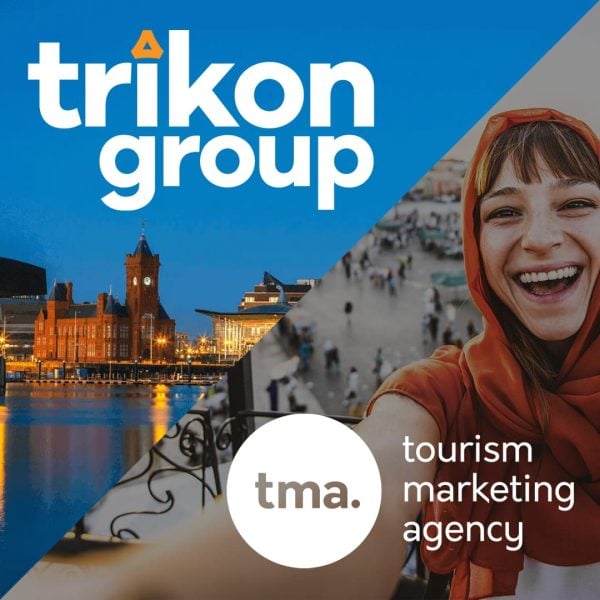I’ve been hearing from numerous tour operators and other travel businesses that, when compared to 2023, travel bookings in 2024 from a US outbound and domestic perspective have slowed. They have not disappeared but they appear to have slowed down somewhat. A poll conducted within our 12.5k strong Tourpreneur community underscores this, revealing that close to 60% of operators are indeed experiencing a noticeable slowdown.
While not every destination is affected, many are feeling the impact. For instance, some operators in New Zealand have witnessed an increase in US-based travellers, whereas certain European destinations and domestic travel within several states have seen reductions.
One of our clients relayed that OTA TourRadar informed them of slowed bookings, with lead times extending to at least 150 days.
So, what factors could be contributing to this trend, and what actions can be taken?
Let’s first examine some available data:
Key Trends:
Mixed Signals: While there isn’t a definitive consensus regarding a major slowdown, certain indicators suggest a cooling of travel enthusiasm compared to the ‘revenge travel’ surge of 2023. Essentially, we seem to be returning to pre-2019 levels. The US Travel Association noted growth in travellers visiting the US in 2023, but 2024 began ‘on a softer note.’
Inflation’s Impact: Rising costs of living due to inflation are influencing people’s travel decisions significantly. Travellers are likely becoming more selective about destinations and the frequency of their trips. This trend has been widely reported by Deloitte and Skift. Skift Research, in its newly published 2024 Global Travel Outlook, predicts deceleration in revenue growth for the travel industry.
Increased Interest in Alternative Travel: There appears to be a shift toward more budget-friendly travel options as prices soar in certain parts of the world.
The Airbnb Clampdown Effect: With destinations increasingly clamping down on Airbnb and other private rental properties, there’s been a ripple effect. This crackdown has led to fewer available properties, significantly driving up prices for both rentals and hotel rooms. The situation in Scotland during the Edinburgh Fringe is a prime example, where some acts are withdrawing due to unaffordable accommodation prices.
Conflicts Abroad: Unfortunately, conflicts in Ukraine, Gaza, and the uncertainty in the Middle East are also impacting travel to Europe. Some travellers, albeit inaccurately, perceive the war in Ukraine as a ‘European’ conflict, which makes them apprehensive. Travel to Egypt has also slowed due to the situation in Gaza.
US Election Years: Virtuoso recently analysed its network’s sales data for presidential election years and the preceding years, finding a correlation between election years and slowdowns. On average, US sales increased by 14.3% in the year before an election year, but only by 2.9% during the election year itself. (We’re currently in discussions with OTA platforms to gather more data on this aspect and hope to share findings soon.)
So, rather than a dramatic slowdown, it might be more accurate to say that US outbound travel is perhaps normalising after the surge of 2023. Travellers are taking longer to book travel-related products than they have over the past two years. However, this poses challenges as many operators have structured their businesses around 2022/2023 sales levels, essentially living up to their means. Indicators clearly suggest that this trend may not persist, so it may be time for some operators to reconsider their product offerings and business strategies.
What can you do about it?
Although slow booking may not be down to one single thing mentioned above, what is becoming clear from the many operators I speak with is that they are having to work harder to close the bookings.
Below are some suggestions to think about if you want to try and increase bookings:
1. Diversify Product Offerings: Given the shift towards budget-friendly travel options, consider diversifying your product offerings to cater to different segments of travellers. This could include introducing budget-friendly packages, off-peak season deals, or curated experiences that offer value for money.
2. Flexible Booking Policies: With travellers becoming more cautious and selective, offering flexible booking policies can instil confidence and encourage bookings. Consider flexible cancellation policies, allowing changes to travel dates, and offering refunds or credits for future bookings. It worked well during the pandemic, and will likely work just as well now.
3. Target Niche Markets: Identify niche markets that are less affected by current trends and tailor your marketing efforts towards them. This could include targeting eco-conscious travellers, adventure enthusiasts, or wellness seekers with specialised travel experiences.
Business travel is one part of the sector that is growing. By offering corporate and team building experiences, you can tap into a domestic audience that may have never been an option before. BTN has reported that United Airlines has seen a 14 percent increase in corporate travel so far this year. The US Travel Association also reported that “Business travel will regain 95% of its 2019 level in 2024, up from 89% last year.” However, they also padded that: “Slowing economic growth will hinder domestic business travel’s recovery, with a full comeback in volume not expected until 2026.”
4. Localised Marketing Campaigns: Instead of focusing solely on international travellers, consider targeting domestic travellers within your region or neighbouring states. Create localised marketing campaigns highlighting unique experiences, hidden gems, and lesser-known attractions to attract domestic travellers.
5. Partnerships and Collaborations: Collaborate with other businesses within the travel industry to create joint promotions, packages, or experiences. This could include partnering with local hotels, restaurants, or activity providers to offer bundled packages or exclusive discounts.
6. Double down on Digital Marketing: Invest in digital marketing strategies to reach and engage with potential travellers more effectively. This could include leveraging social media platforms, search engine optimization (SEO), content marketing, and email marketing to showcase your offerings and engage with your audience.
- User-Generated Content Campaigns: Encourage travellers to share their experiences through user-generated content campaigns on social media platforms. Encourage the use of branded hashtags, run contests or giveaways, and feature user-generated content on your website and social media channels to showcase authentic experiences and inspire others to book.
- Influencer Partnerships: Collaborate with travel influencers and content creators to promote your brand and offerings to their engaged audiences. Identify influencers whose audience aligns with your target market and work with them to create sponsored content, reviews, or travel guides that showcase your destination or experiences.
- Search Engine Marketing (SEM): Invest in search engine marketing strategies such as pay-per-click (PPC) advertising to increase visibility and drive traffic to your website. Target relevant keywords related to your destination, activities, or niche markets to ensure your ads appear prominently in search engine results.
- Retargeting Campaigns: Implement retargeting campaigns to re-engage website visitors who have shown interest in your offerings but haven’t yet booked. Use targeted ads across social media platforms and display networks to remind potential travellers of your brand and to encourage them to complete their booking.
- Email Marketing Automation: Utilise email marketing automation to nurture leads, send personalised offers, and provide valuable travel insights and tips. Segment your email list based on traveller preferences, past booking behaviour, or demographic information to deliver relevant content and promotions that resonate with your audience.
- Focus on Search Engine Optimisation: Optimise your website and content for search to capture travellers searching for experiences in specific destinations or regions. This includes optimising meta tags, local keywords, and creating location-specific landing pages to improve visibility in local search results.
7. Enhance Customer Experience: Focus on enhancing the overall customer experience to encourage repeat bookings and positive word-of-mouth referrals. This could involve providing personalised recommendations, excellent customer service, and post-trip follow-ups to gather feedback and address any concerns.
8. Stay Informed and Adapt: Continuously monitor industry trends, consumer preferences, and market dynamics to stay informed and adapt your strategies accordingly. Remain flexible and agile in responding to changes in the market; this will help you stay ahead of the competition.
Final Thoughts
You might count yourself among the fortunate few who haven’t yet felt the impact of the travel slowdown. For those of you operating in the multi-day tour space, you might currently find yourselves bustling with activity. However, it’s worth considering: how many of these bookings originated in 2023? How are 2024 bookings for later in the year or into 2025 compared to previous years?
While there’s no need for alarm bells just yet, it’s essential to acknowledge that the era of “revenge travel” from the past couple of years has come to an end. It’s prudent to prepare and to have a contingency plan in place for the inevitable slowdown that, as the data suggests, is starting to happen to quite a few destinations and niches.
Update 18th July 2024
Recent Observations from the Irish Tourism Sector
After speaking with a client who had a discussion with the Irish tourism board, they have noticed a noticeable downturn in several areas…
Tours and Activities: There has been a decrease of up to 20% in bookings compared to last year
Flight and Hotel Prices: Despite lower prices, the volume of travellers has not matched last year’s levels.
Domestic Tours and Activities: These have seen a significant decline, reflecting a broader hesitation among travellers.
Impact of Major Sporting Events on Travel
This year’s major sporting events, such as the UEFA Euros in Germany and the Olympics in Paris, are significantly influencing travel habits. Many potential travellers are choosing to stay home to watch these events, choosing to delay travel until these events are over or are traveling specifically to these locations, resulting in fewer trips to other destinations.
Update 24th July 2024
Airlines seeing that consumers are ‘cutting back’
Ryan Air recently informed the industry that they are seeing a huge decrease in consumers travelling.
For tour operators, they mentioned a rise in last minute bookings!
“The company said cost-conscious passengers were cutting back while the timing of Easter holidays had also hit earnings.”
“After two years of growth in travel demand, “there’s a bit of pushback.”
“The weak results may suggest that a post-pandemic boom in pricing enjoyed by airlines could be coming to an end, with other carriers having recently warned over falling ticket prices.“
“Performance over the rest of the summer is ‘totally dependent’ on more last-minute bookings and those in August and September in particular.”
“Lufthansa has also pointed to “negative market trends”, while Air France-KLM warned of a financial hit after fewer people than expected booked flights to Paris for the forthcoming Olympic Games.”

